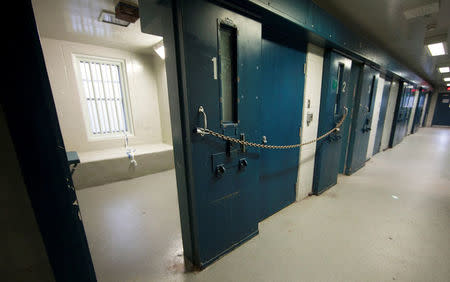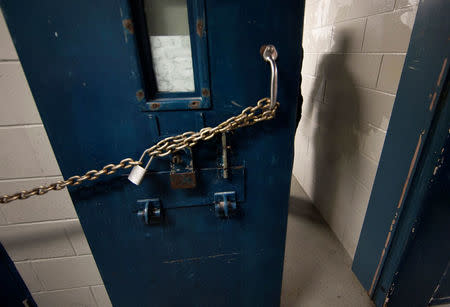Canada's solitary confinement practices unconstitutional - judge
By Anna Mehler Paperny
TORONTO (Reuters) - Canada's use of solitary confinement in federal prisons is unconstitutional, a Canadian judge said on Wednesday, in a ruling that could end the controversial practice unless Ottawa appeals the decision.
Canadian law currently allows an inmate to be placed in "administrative segregation," as solitary is known, for an indefinite period of time for non-disciplinary reasons, such as protecting prisoners from fellow inmates. The United Nations considers solitary over 15 days to be torture.
British Columbia Supreme Court Judge Peter Leask found that the laws governing administrative segregation in Canada's federal prisons contravene the country's Charter of Rights and Freedoms.
The ruling gives the federal government a year to bring its laws in line with the Charter. Canada's Public Safety Minister Ralph Goodale, who oversees the federal prison system, said in a statement the government is reviewing the ruling.
Goodale said Ottawa has already introduced legislation that would limit the amount of time someone can be held in solitary confinement.
The British Columbia Civil Liberties Association (BCCLA), which brought the case, said the ruling is a victory.
"It's an incredible decision," BCCLA lawyer Jay Aubrey said, adding she hopes the government rewrites its laws to prohibit the use of solitary confinement for youth and people with mental illness and to cap the length of solitary confinement at 15 days.
She said the government should also take steps to address the over-representation of indigenous inmates, particularly indigenous women, in solitary confinement.
The law currently caps solitary for disciplinary reasons at 30 days. The vast majority of people in solitary confinement in Canada are under administrative, not disciplinary, segregation.
(Reporting by Anna Mehler Paperny; Editing by Phil Berlowitz)




